Shebeen, by Zimbabwean-born playwright Mufaro Makubika, is about a Jamaican husband and wife who run a business hosting private parties from their small Nottingham home, in England, 1958.
The first part of the play deals with the arrangement between ex-boxer husband George (Karl Collins) and wife Pearl (Martina Laird), and the compromises both make to feed their family (the three young kids are heard of but never seen).
Their clientele is made up of fellow-colonial refugees, who come together – for a small fee – to drink rum, dance to Caribbean music, share tales of ‘back home’, and to seek sanctuary from the incessant English condescension/racism of the day. Boxing promoter Robert Dunne’s (Adam Rojko Vega) arrival, and offer of a comeback fight, highlights the unspoken tension between George and Pearl.
It’s a stunning portrayal of a black woman in post-Windrush England, striving for a foothold.
He still hankers for his pugilistic prime, while she wishes to distance both of them from that life – and will do anything in her power to protect her dream. Which is why she becomes the best hostess she can – smooth-talking local policemen, the patrons, and even her husband.
The first act is also where we see the ‘shebeen’ in full flow; the sense of community, banter, camaraderie, and humour being personified by Earnest (Roland Bell).
He is the kind of debonair, verbose dandy all-too familiar to those who frequented old Caribbean parties: a gentleman who enjoys drinking and eating just a little more than everyone else, but who also isn’t quite as funny, knowledgeable, well-dressed, or ‘smooth on the dance-floor’ as he thinks he is.
He is a funny/ sad/ complex character, brilliantly brought to life.
The first act is also where we are introduced to the relationship between young, White English girl Mary (Chloe Harris) and ‘nice’, young black boy Linford (Theo Solomon). Needless to say, the ‘shebeen’ is a safe space for such interracial couples; however, as we get to hear about the racially motivated assaults, police harassment and verbal haranguing, it’s quite evident that the world outside isn’t.
The second act deals with the fall-out of one such incident, and how Pearl has to make a life-changing choice in order to protect the family business.
And this is Pearl’s play.
One speech to George, in particular – where she begs him not to return to the ring, while placing both hands over his heart – is stunning.
However, it is clear that Pearl is no hopeless romantic. She constantly scoffs at the idea that ‘love will conquer all’ (“It takes more than love – it takes a stomach for the fight”), routinely refers to her and George as “partners”, and – when all is said and done – she will sacrifice the dreams of all others on the altar of her own (modest) ambitions.
It’s a stunning portrayal of a black woman in post-Windrush England, striving for a foothold. As always, Martina Laird imbues her performance with a soulfulness and heart that makes the audience empathise and sympathise in equal measure – even if her character’s choices are clearly self-serving.
Elsewhere, Karl Collins’ George strikes the right balance between misty-eyed, resigned nostalgia and wounded, prideful ‘man-of-the house’ machismo. Miss Harris (Mary) and Hazel Ellerby (as her unthinkingly racist mother Mrs Clarke) also perform well.
writer Mufaro Makubika helps to bring to the stage another set of tales from a black British perspective. Bravo!
If the denouement seems a little too pat, it is not the fault of the performances. The accents – in an environment that is traditionally associated with Jamaican immigrants – sometimes seem a little too ‘peripatetic’; often it seems that we are witnessing a Trinidadian ‘shebeen’. However, this is a small (and niche) gripe.
Matthew Xia’s direction and Grace Smart’s set design give us a sense of both the interior and the (more dangerous) exterior lives of the characters.
All told, writer Mufaro Makubika does the (past) lives of his Nottingham neighbours justice, and helps to bring to the stage another set of tales from a black British perspective. Bravo!






















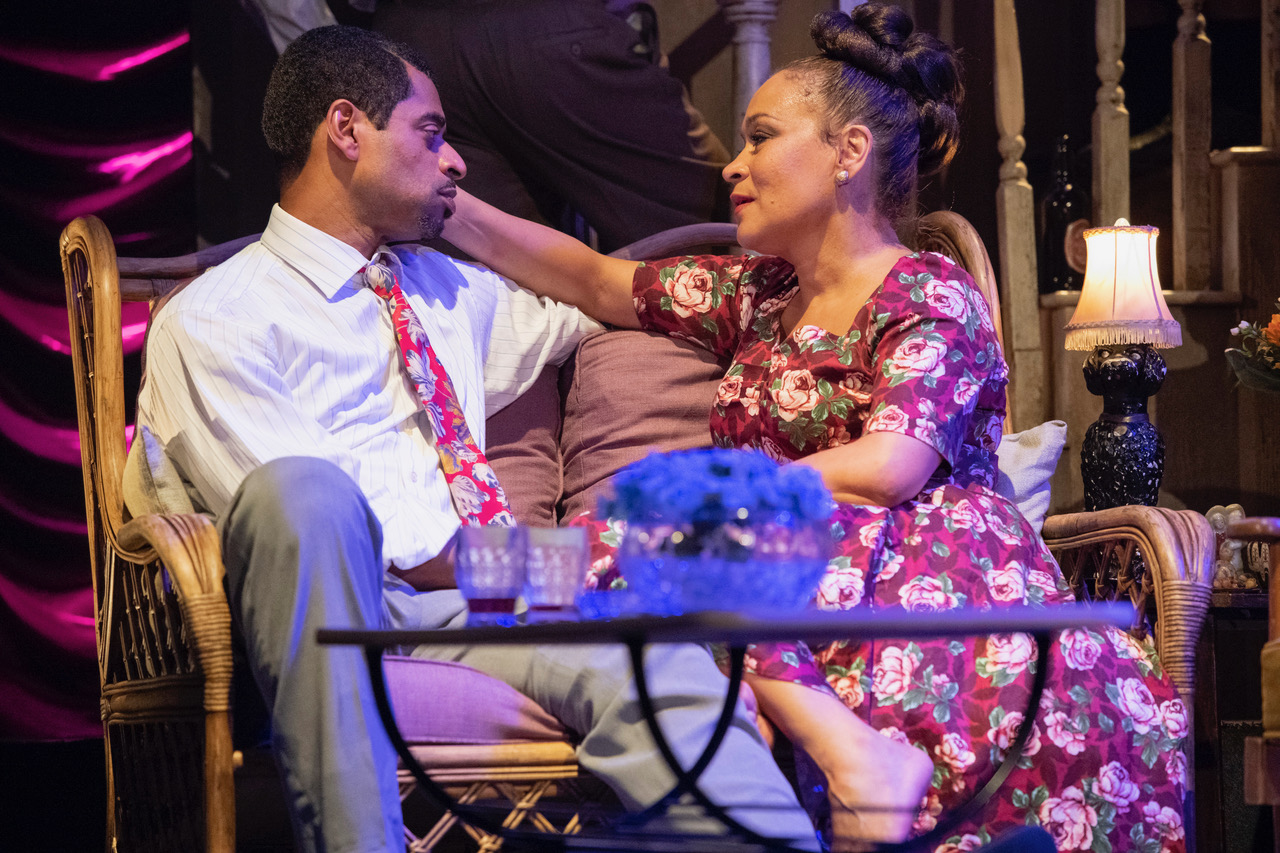
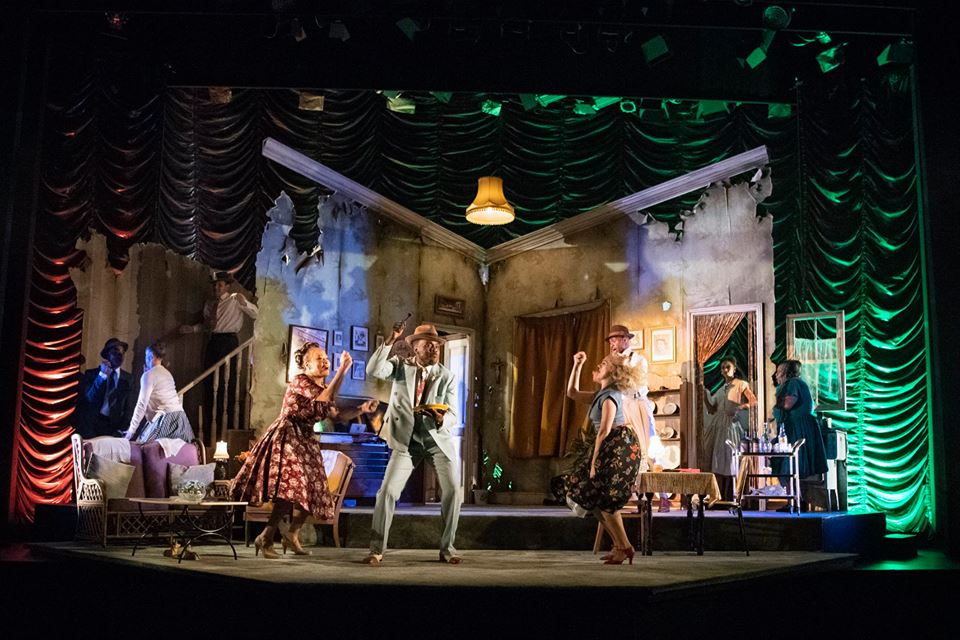
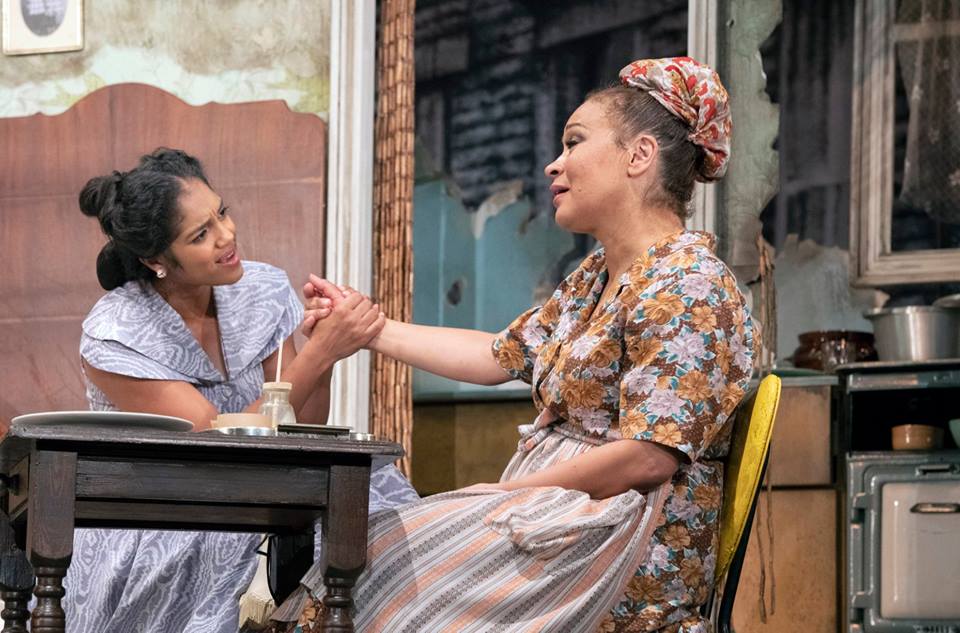
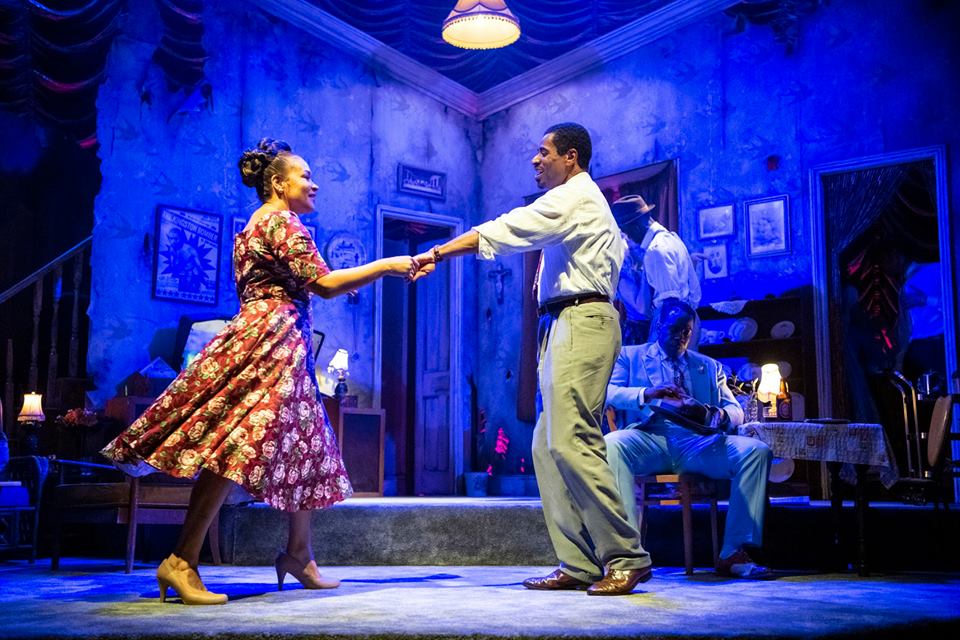
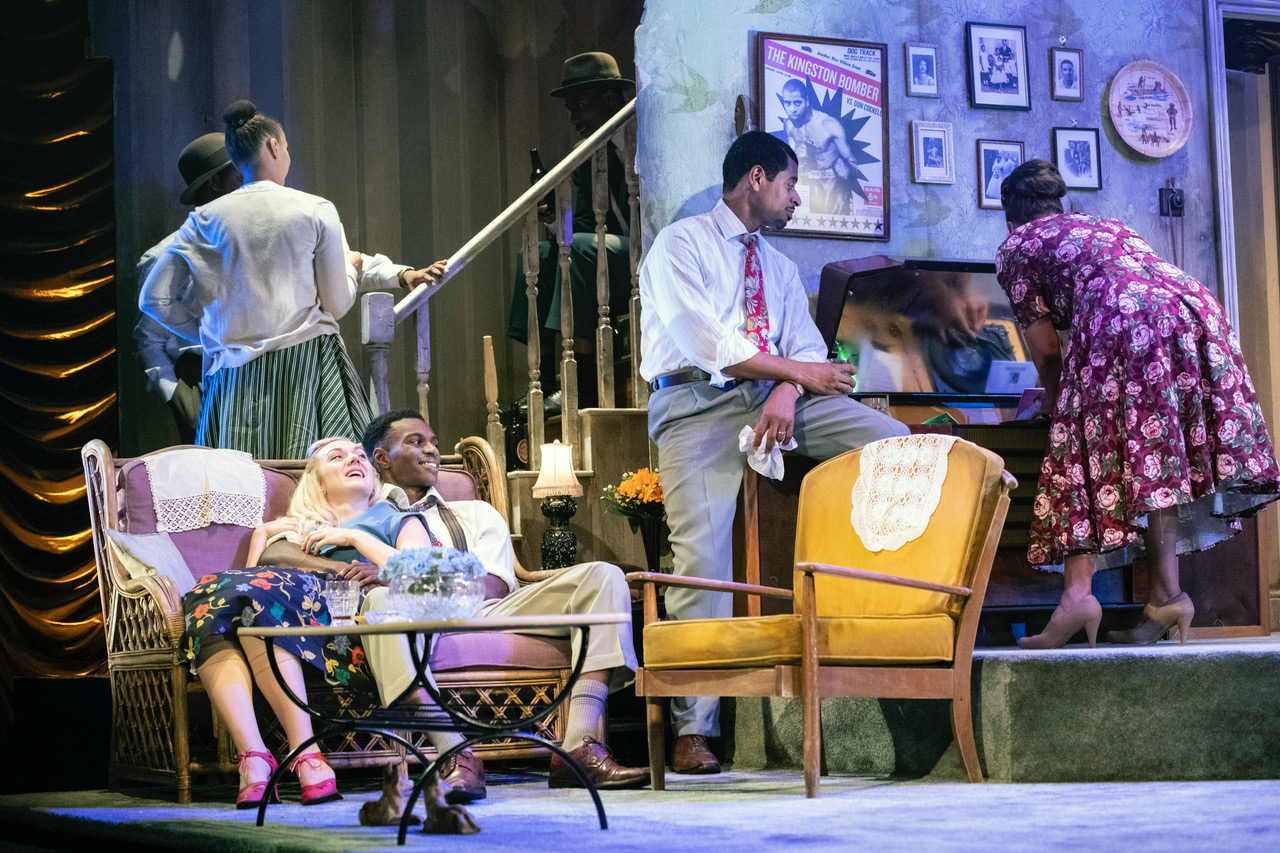

![Wise Children Wise Children, The Old Vic Theatre [Photo by Steve Tanner]](https://www.afridiziak.com/wp-content/uploads/2019/09/Wise-Children_Photo-by-Steve-Tanner-324x160.jpg)